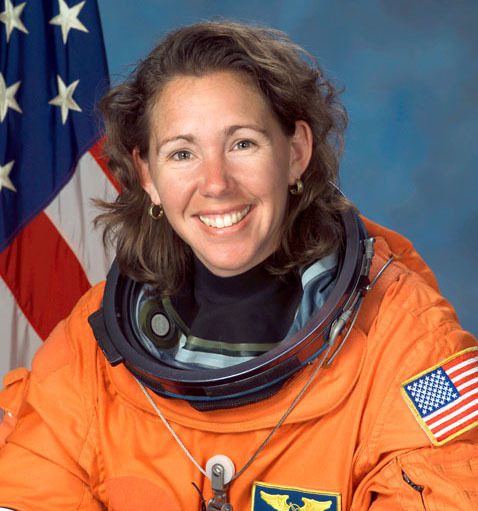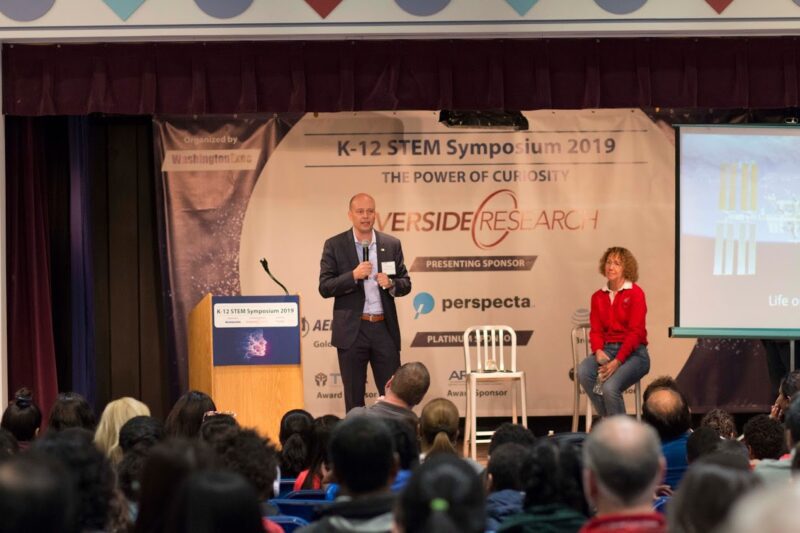
Over 3,000 students, parents, teachers, industry leaders, government techies and academics gathered this spring at the Nysmith School for the Gifted to attend the sixth annual K-12 STEM Symposium — and to hear from someone who sees the world from quite literally a unique perspective.
In her “STEM in Space” presentation, keynote speaker, Dr. Sandy Magnus, spoke about her experience and career as a NASA astronaut. Her 16-year career with NASA included three missions to the International Space Station. Throughout her time at NASA, Magnus focused on the construction and development of the ISS.
Magnus talked about life on the space station, including how she prepared food, slept and took showers in zero gravity. She described to the audience how the views of the Earth from space made her appreciate our planet more.
“You look out the window and you see it and you recognize how fragile it is, how beautiful it is, how very special it is,” she said.
Additionally, Magnus talked about why the ISS had been created: to conduct scientific research in zero gravity to better understand the universe and to help develop future space travel farther from Earth.
Magnus then took questions from curious students in the audience, which included queries about how astronauts sleep in space, how the ISS is powered (through solar energy) and what astronauts do when they get sick in space.

When asked about sleep in space, Magnus gave the audience a lesson on the impact of gravity on sleep. When in zero gravity, people expend less energy, are less tired and thus need less sleep. Although returning to Earth after extended periods in zero gravity can be taxing on the body as it is not used to the pressure gravity exerts on Earth, she explained. Magnus also described the day-and-half-long journey to the ISS, including being stuck in a space suit for 11 straight hours with no bathroom.
When telling her story, Magnus stressed that while she has both a master’s degree and a Ph.D., she continues to learn and study.
“I’ve been in school my whole life,” she said, referencing how it takes years of training before astronauts can go to space. She further encouraged students to find a subject they care about, to pursue their passions and seek advice from adults willing to help.

